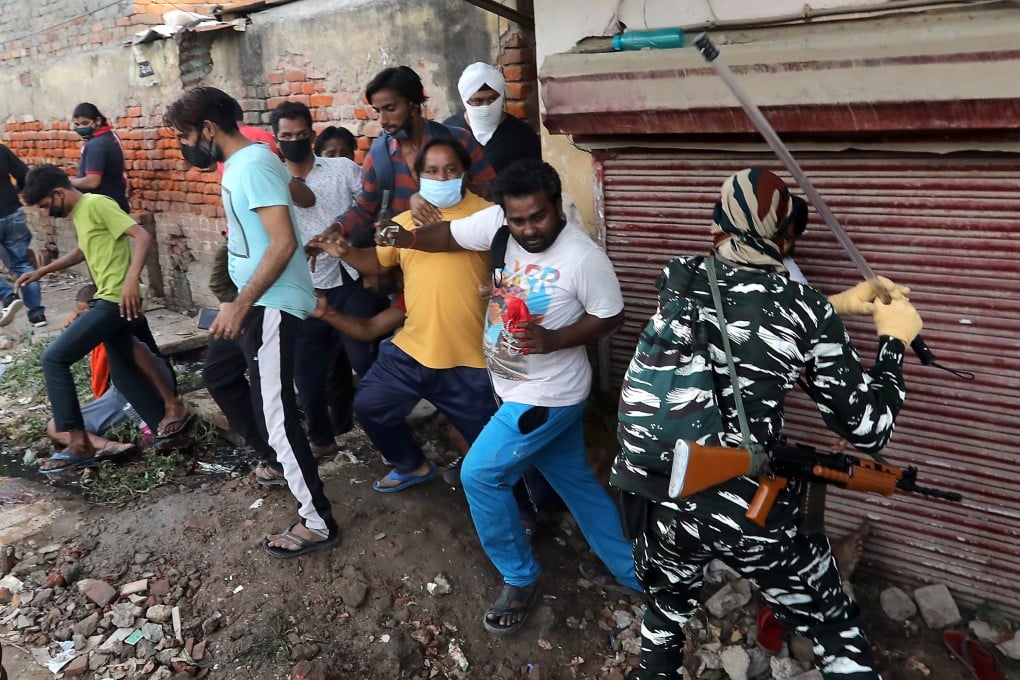India eases coronavirus lockdown, leading to brawls outside liquor stores
- There have also been clashes between police and migrant workers, who were stranded in the cities where they work due to the restrictions
- India’s easing of restrictions is primarily aimed at reviving its economy, which could be heading for its first full-year contraction in more than four decades

Violence and chaos marred India’s first day of freedom from its stringent virus lockdown as migrant workers clashed with police in western India and brawls erupted outside liquor shops in the national capital.
The prolonged lockdown has hit millions of daily wage earners and migrant workers across the nation of 1.3 billion as jobs and income dried up overnight, leaving them penniless and stranded in the cities where they work. With all forms of transport barred by the lockdown, many started a desperate walk back to their villages on foot and on bicycles.
Others have been stuck in the compounds of now shuttered factories where anger has been brewing.
In Surat, an industrial and diamond processing hub in the western state of Gujarat, television footage showed police using tear gas to control crowds of angry workers, who pelted them with stones and demanded to be allowed to go home. Similar protests erupted in the city earlier in the lockdown.
The federal government announced it would start running special trains from May 1 to transport the stranded migrant workers. Local authorities will screen the passengers and only those found to be symptom-free would be allowed to travel, the home ministry said.
But some impoverished workers say they were made to pay a fare for their journeys, prompting Sonia Gandhi, the president of the opposition Congress Party, to announce her party would bear the cost for the migrants’ travels.